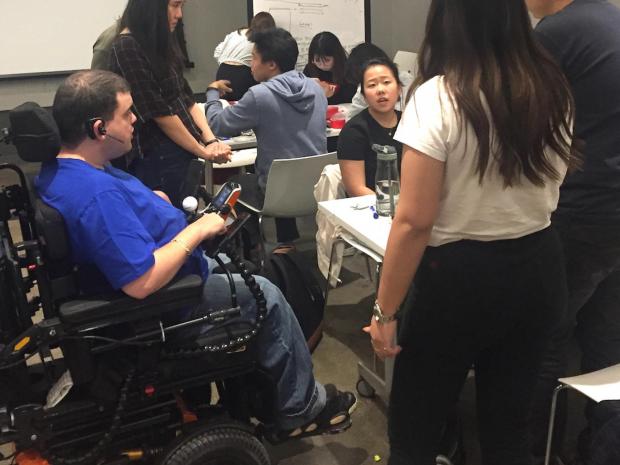Inclusive Research @ Tandon
As research institutions, engineering schools are also perfectly positioned to create next-generation technology that accounts for inherent bias, measures disparities, increases accessibility for people with disabilities, and opens world-changing possibilities in sometimes unexpected ways.

As an engineering school, we are in the rare position of being able to not only provide an education to our students — regardless of where they come from, their ethnicity, gender, sexual orientation or socioeconomic background — but to also use our research prowess to create opportunity for all people.” — Dean Jelena Kovačević
Equity
- Through the COVID-19 pandemic, telemedicine has become a necessary entry point into the process of diagnosis, triage and treatment. With racial and ethnic disparities in health care well documented with respect to risk of infection and in-hospital outcomes, Rumi Chunara, an assistant professor in the Department of Computer Science and Engineering at NYU Tandon, and in the Department of Biostatistics at NYU School of Global Public Health, saw the need to assess disparities for those who accessed care for the virus via telemedicine. Discovering that telemedicine access disparities reflected those of in-person healthcare access, she and her colleagues hope that their work can be used to inform tool design and systemic efforts to promote digital health equity.
- Connected Cities with Smart Transportation (C2SMART) is a Tier 1 University Transportation research center whose goals include making transportation more accessible and equitable. The center has collaborated with the New York City MTA’s Accessible Station Lab for subways, created an on-demand tool to support senior access to mobility, and researched how women may be paying a premium for transportation in urban environments, among other projects.
- Yury Dvorkin, an assistant professor of electrical and computer engineering, is working to increase the resiliency of the power grid, because, as he’s discovered, outages all too often disproportionately affect already-vulnerable populations.
Inclusion
- With programs like the Africa Multi-City Challenge, a partnership with the UN Development Programme, researchers at The Governance Lab (The GovLab), are studying ways of using technology to increase citizen influence on government processes and promote collaboration.
- The Center for Responsible AI is building open-source tools and frameworks for equitable data-sharing, more transparent algorithmic decision-making systems, and more — with an eye towards a future in which responsible AI is the only kind accepted by society.
- Since 2016, Tandon students, with the support of the NYU Ability Project, have been making custom, 3D-printed orthotics for young patients with cerebral palsy — an especially important initiative since insurance companies often refuse to pay to replace outgrown braces in a timely way.
- Industry Assistant Professor Reginé Gilbert literally wrote the book on accessible design: she’s the author of Inclusive Design for a Digital World: Designing with Accessibility in Mind, a comprehensive volume that explores the Web Content Accessibility Guidelines, best practices for web development, and more.
Diversity
- Wireless communications researchers are seeking ways to provide greater capability and functionality to mobile device users; making a multi-pronged effort to educate the next generation of machine learning and wireless professionals at the K-12, undergraduate, and graduate levels; and broadening participation of underrepresented minority groups.

